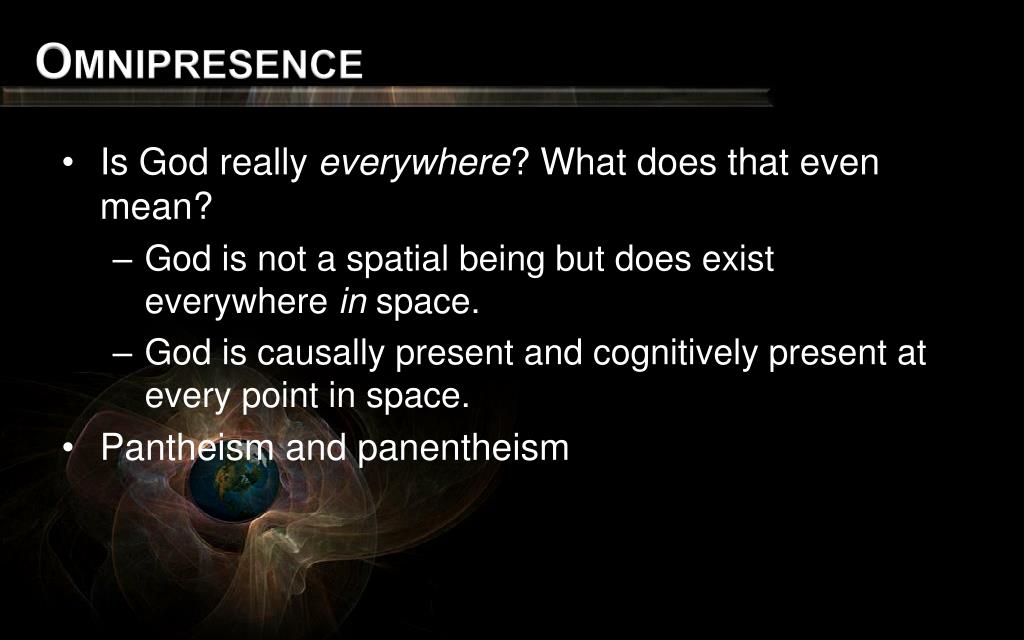

But there are certain places in the creation where God has ordained that we will sense his presence with particular intensity, like the burning bush in Exodus 3, the inner court of the Temple, and indeed the person of Jesus Christ, God’s temple incarnate (Matt. He does not literally dwell on a material throne, as Solomon observes at the consecration of the Jerusalem Temple (1 Kgs. Of course, God transcends space as he transcends time.

“Heaven” is a way to refer to God’s throne (Isa. He is “high” in the sense that the king’s throne is high above his subjects. How, then, should we define God’s transcendence, if it is not a barrier to our knowledge of God and our clear speaking about him? The biblical language of God “on high” or “in Heaven” refers uniformly to God’s royal dignity. The unknowns are “known unknowns.” And the mystery is always a mystery about a God who otherwise is “clearly” known. He tells the Roman church what it is that they do not know, and why they do not know it. Granting the mysteriousness of God’s actions in history, Paul is still able to speak of the mystery in clear human language. What is mysterious in this passage is his “immanence,” not his “transcendence.” As we saw earlier, Paul has spoken in Romans about the clarity of God’s revelation from “heaven” (1:18–21). However, this passage does not speak of God’s transcendent existence “on high,” but about God’s “ways” in history as described in Romans 1:1-11:32. Oh, the depth of the riches and wisdom and knowledge of God! How unsearchable are his judgments and how inscrutable his ways! “For who has known the mind of the Lord, or who has been his counselor? Or who has given a gift to him that he might be repaid?” For from him and through him and to him are all things. To be sure, there are passages in Scripture that emphasize God’s incomprehensibility, his mystery, such as Romans 11:33–36: (Rom 1:18–22)Ĭlearly, then, it is wrong to think of God’s transcendence as a kind of cloud hiding God from the human mind. For although they knew God, they did not honor him as God or give thanks to him, but they became futile in their thinking, and their foolish hearts were darkened. For his invisible attributes, namely, his eternal power and divine nature, have been clearly perceived, ever since the creation of the world, in the things that have been made. For what can be known about God is plain to them, because God has shown it to them. Indeed, when God reveals himself “from heaven,” he reveals himself clearly, so that those who reject him have only themselves to blame.įor the wrath of God is revealed from heaven against all ungodliness and unrighteousness of men, who by their unrighteousness suppress the truth. While affirming God’s transcendence, Scripture speaks in clear and certain language about his nature and actions. In modern theology, this concept leads to a skepticism about the adequacy of Scripture itself as a revelation of God and about the ability of human beings to say anything about God with real assurance (John Frame, The Doctrine of God, 110).īut Scripture itself never connects God’s transcendence with human uncertainty about God, let alone skepticism. He transcends our language, so anything we say about him is utterly inadequate.

God is so far above us, so very different from anything on earth, that we can say nothing, at least nothing positive, about him. Some ancient and modern writers, however, have taken God’s transcendence to mean something else: So transcendence is a convenient term to summarize these ways in which God is “above us.” 113:5) indeed, he is himself the “most high” (Ps. Scripture often speaks of God as “exalted” (Ps.

For though the term transcendent is not itself biblical, it is a convenient way of grouping together certain biblical ideas. Let us look first at the ways in which God is transcendent. There is no biblical term that captures all of what theologians want to say about God’s transcendence, but the idea of immanence is helpfully summarized in the term Immanuel, God with us (Isa. To say that God is immanent is to say that he is present in time and space, that he is near us. In general, to say that God is transcendent is to say that he is exalted, above, beyond us. The terms transcendence and immanence are not found in most versions of the Bible, but they are common in the theological literature to designate two kinds of relationships between God and human beings.


 0 kommentar(er)
0 kommentar(er)
